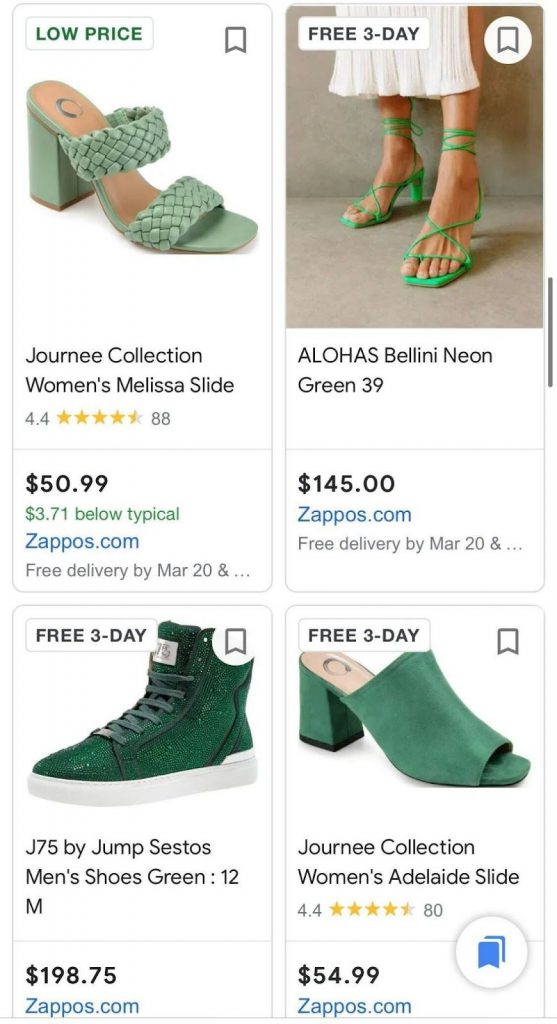After 18 years, Google has rebranded its flagship advertising product—AdWords—along with a few other ad offerings. Here’s what the rebranding entailed:
- Google AdWords switched to Google Ads.
- DoubleClick advertiser products and Google Analytics 360 combined under the name Google Marketing Platform.
- DoubleClick for Publishers and DoubleClick Ad Exchange became Google Ad Manager.
It’s fair to say Google’s ad products were due for a rebrand, especially considering that Google launched AdWords all the way back in 2000.
‘Google Ads Have Evolved’
According to Google, the rebranding effort was driven by the search engine’s desire to simplify its brands and product offering for advertisers and publishers. It was additionally an effort to better reflect the many different ways consumers engage with Google ads today. “Mobile is now a huge part of our everyday lives,” Sridhar Ramaswamy, Senior Vice President of Ads and Commerce at Google, wrote on the search engine’s blog The Keyword. “People quickly switch from searching for products, to watching videos, browsing content, playing games, and more. “As a result, marketers have more opportunities to reach consumers across channels, screens, and formats,” he continued. “The opportunity has never been more exciting, but it’s also never been more complex.” Over the years, Google ads have evolved from helping marketers connect with people on Google Search, to helping them connect at every step of the consumer journey through text, video, display and more.” Ramaswamy added that the simpler naming of its advertising brands and solutions will help advertisers and publishers big and small choose the best ad options for their businesses. Sighting the new changes will help advertisers create the right experiences for consumers across various devices and channels.
From 2000 to On: Growth & Diversification
It’s no big surprise that Google would choose to rebrand, but it has come a long way for a search engine with advertising.
Did you Know…?
-
AdWords launched October 23, 2000, with only 350 advertisers. Now, it has millions of advertisers and produces tens of billions of dollars for Google each year.
-
In 2000, Google had approximately 20 million searches a day. Today, that has swelled to over 8.5 billion searches a day.
-
Google has gone from focusing primarily on paid search text ads to a full scope of advertising options, including search ads, display ads, video ads, audio ads, Gmail ads, Google Maps ads, and more.
And more importantly, the ability to place your ads in front of targeted audiences has never been more powerful. Back in 2018, Google held a Marketing Live Conference for its partners in San Jose, which brought announcements of more innovations of Google Ads than all the previous partner conferences combined.
What’s New in 2022?
Since 2021 Google has continued to optimize its Google Ad platform. A few notable updates include: Keyword Matching Behavior Update Google Ads is getting a little help from BERT. In a new development launched in September of 2021, Google now uses board match and phrase match keywords to apply to Google ads. That’s good news for businesses that put out ads with more than one keyword or phrase. Farewell to Expanded Text Ads Before you panic, any existing expanded text ads (ETAs) you currently have are safe. One of Google’s latest updates to their ad program is doing away with the ability to create new expanded ads and has replaced them with responsive search ads (RSAs). Basically, responsive search ads allow the business to create an ad that’s adapted to allow for more texts in the form of multiple headlines, and various descriptions—thus creating a more relevant message to your target audience. Over time, Google Ads will test your different text combinations to pinpoint what is performing the best. If you still have expanded text ads floating around, you only have the ability to pause or delete them. However, they will run indefinitely despite the adoption of ETAs. Newly Released Annotations for E-Commerce For consumers wanting to support online stores that are locally owned, veteran, or black-owned to name a few, Google Ads now allows for opt-in labels. To meet the growing demand for transparent online shopping, part of the new update allows for ads to include annotations that customers care about, such as “free 90-day returns” or “low price.”  Standard Display vs. Smart Display No longer two separate options, standard and smart display campaigns have been merged into one module. However, you can still choose between standard or smart. Once the Display option has been selected, you’ll be given the choice between the two campaigns. This new module for display ads will also include automatic Optimized Targeting as a feature. You can opt-out of it if you choose or add your own targets. Tourism Gets a Boost Before when someone searched for a specific tourist attraction or place, they would receive general information about the attraction and potentially suggestions of similar places. Now, tourist attraction sites have a lot more meat. Google Ads now allow travel advertisers to include travel information automatically with the ad search results, including pricing, booking links to tickets, reservations, and reviews. Google continues to evolve as buyer behavior shifts and consumer demand grows. Recently they announced a new focus on automation, measurement, and privacy. For the businesses, Google Ads will continue to be innovated for simpler use, a large ad inventory, and multi-channel reach. Google Ads Vice President and General Manager Jerry Dischler sites “Over 80% of Google advertisers are now using automated bidding to free up time and improve ad performance” as the inspiration behind the changes. It’s clear Google has embraced and figured out programmatic advertising and artificial intelligence—and we’re excited at the deluge of tools, reporting, attribution, and powerful campaign options as Google continues to roll them out. As a Google Premier Partner and a back-to-back Google Champion of Customer Satisfaction, Scorpion is already preparing how to bring these cutting-edge solutions to our advertisers as they’re announced. To find out how Scorpion can assist you with your Google Ads campaigns, talk to a member of our team!
Standard Display vs. Smart Display No longer two separate options, standard and smart display campaigns have been merged into one module. However, you can still choose between standard or smart. Once the Display option has been selected, you’ll be given the choice between the two campaigns. This new module for display ads will also include automatic Optimized Targeting as a feature. You can opt-out of it if you choose or add your own targets. Tourism Gets a Boost Before when someone searched for a specific tourist attraction or place, they would receive general information about the attraction and potentially suggestions of similar places. Now, tourist attraction sites have a lot more meat. Google Ads now allow travel advertisers to include travel information automatically with the ad search results, including pricing, booking links to tickets, reservations, and reviews. Google continues to evolve as buyer behavior shifts and consumer demand grows. Recently they announced a new focus on automation, measurement, and privacy. For the businesses, Google Ads will continue to be innovated for simpler use, a large ad inventory, and multi-channel reach. Google Ads Vice President and General Manager Jerry Dischler sites “Over 80% of Google advertisers are now using automated bidding to free up time and improve ad performance” as the inspiration behind the changes. It’s clear Google has embraced and figured out programmatic advertising and artificial intelligence—and we’re excited at the deluge of tools, reporting, attribution, and powerful campaign options as Google continues to roll them out. As a Google Premier Partner and a back-to-back Google Champion of Customer Satisfaction, Scorpion is already preparing how to bring these cutting-edge solutions to our advertisers as they’re announced. To find out how Scorpion can assist you with your Google Ads campaigns, talk to a member of our team!



